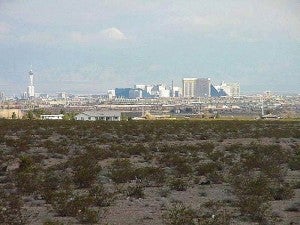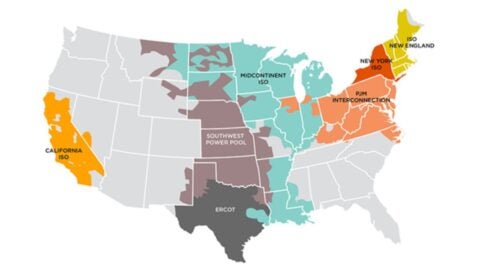Urgency and Opportunity for Latino Leadership on Climate

When I landed in Las Vegas last week, the weather was a broiling 108 degrees. Ouch.
I braved the Las Vegas heat for one of the most inspiring convenings of Latino leaders in the country, the Annual Conference of the National Association of Latino Elected Officials (NALEO). We had a chance to hear from established and rising Latino leaders, as well as from Presidential candidates, about the challenges facing Latino communities and the many paths forward for creating a brighter future.
What we did not hear about was a vision for places like Las Vegas, where summer temperatures are bound to get hotter and water will become even more scarce in the face of climate change. In fact, there was no formal conversation about what climate change means for the U.S., and specifically for Latinos.
Here’s the short version of the missing conversation on climate: climate change presents challenges to everyone but it is having, and will continue to have, a disproportionate impact on Latinos in the United States.
To illustrate, let’s look at the three states that house more than half the Latinos in the US:
- California, and the state’s majority Latino population, is facing its fourth year in historic drought that’s been exacerbated by climate change.
- This summer, Texas experienced unprecedented flooding, nearly canceling out the state’s prior state of drought, in a demonstration of the kind of extreme weather linked to climate change.
- Florida’s real estate and freshwater is already threatened by initial increases in sea-level rise, which are also eroding the state’s beaches.
There are more than 28 million Latinos facing climate threats in these three states alone. That does not count the millions of other Latinos nationwide who will face extreme heat and longer wildfire seasons in the Southwest this summer. It does not account for all 49 percent of Latinos nationally who live in coastal communities and will face more frequent and intense hurricanes and flooding. It also does not account for the full 14 percent of Latino kids diagnosed with asthma, who will face greater challenges to managing this condition due to more days with unhealthy levels of smog.
That was the bad news. It points to the fact that our leaders should not ignore the impacts of climate change on the Latino community. As climate impacts the air we breathe, threatens water we use for drinking, swimming, farming, and fishing, and even endangers our health, leaders at all levels need to take a proactive stance to protect our communities by addressing climate change.
Here’s the good news — the support is already there to act on climate. National polling has shown that 63 percent of Latinos think the federal government should act broadly to address global warming, while 8 in 10 Latinos want the President to curb the carbon pollution that causes climate change.
There are also some great opportunities hidden among the challenges. For example, today’s clean energy economy is creating more jobs than the fossil fuel economy. Jobs in the clean energy economy also offer higher wages to a wide range of workers, relative to the broader economy.
Which brings me back to Vegas. While there was no formal climate change discussion on the program, Latino environmental leaders from around the country were sparking conversations in the halls about conservation, climate change, and la comunidad. Advocates from New Mexico’s Hispanics Enjoying Camping, Hunting, and Outdoors talked with conference guests about the importance of protecting our public lands. Colorado’s Nuestro Rio shared their work protecting the Colorado River and our bond to this precious resource.
EDF also played a role, teaming up with GreenLatinos, Green 2.0, and Nuestro Rio to host a reception and highlight the importance of addressing climate change at a national level. Nearly everyone we spoke with about our work was interested in hearing about solutions and how to do more.
As we participated in conference events last week, Pope Francis reminded us that we “have the duty to protect the earth and ensure its fruitfulness for coming generations.” Latino communities, and our leaders, are no exception. We have a duty to address climate change — protecting our families, our children, and our climate is something we cannot afford to gamble on.












